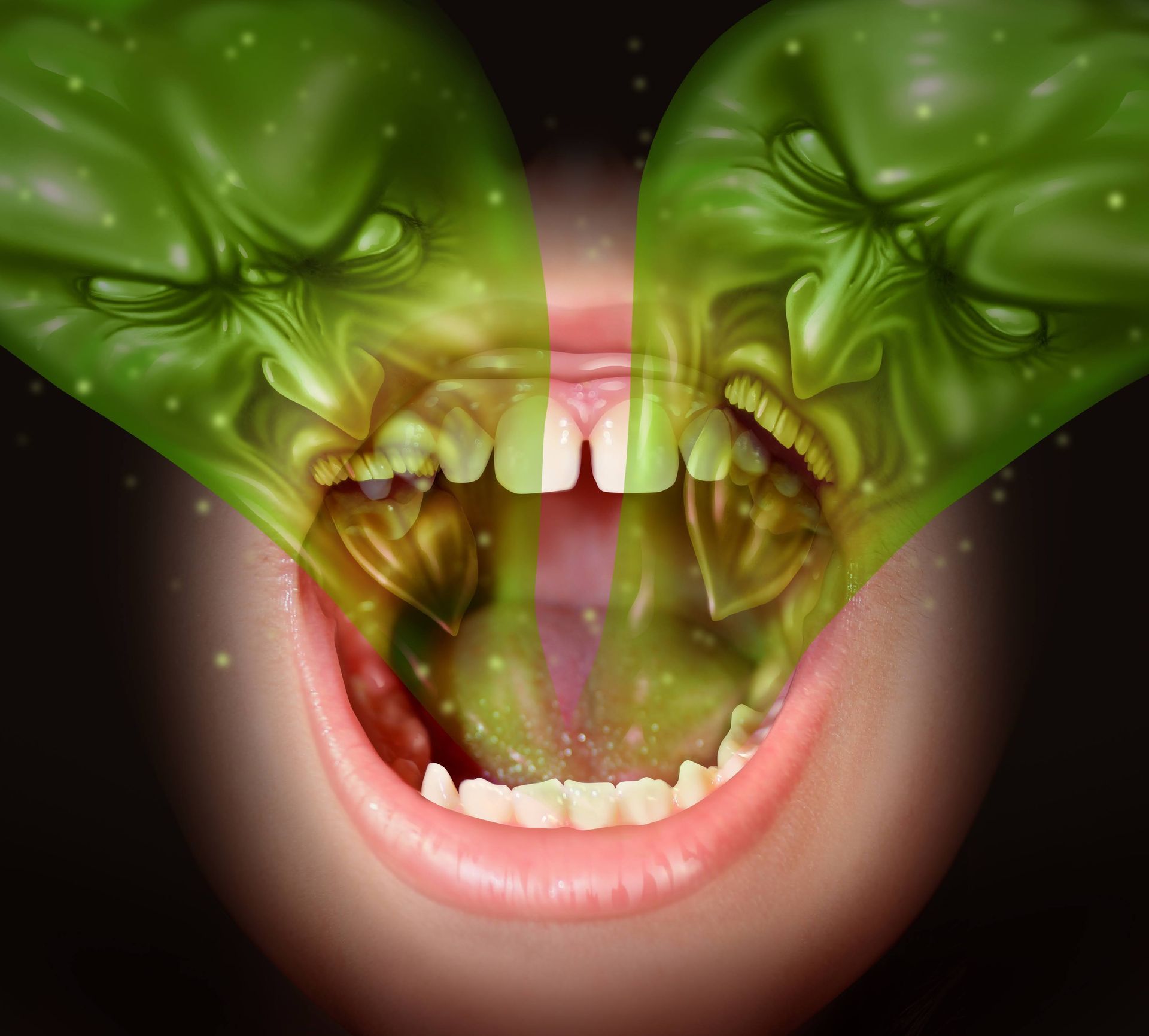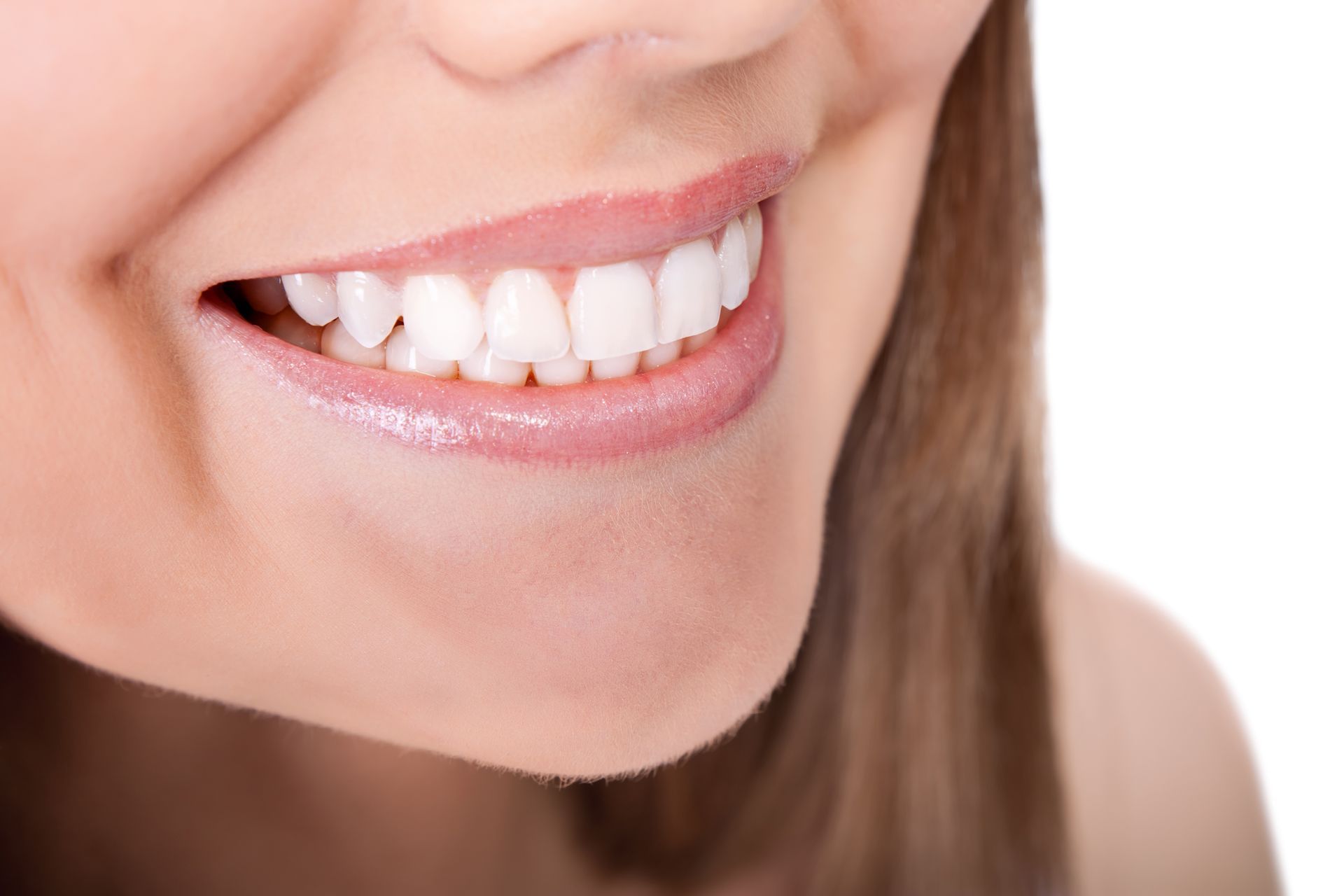(843) 216-0908
7 Causes of Bad Breath

Bad breath, or halitosis, can be an embarrassing issue that can make social and professional interactions difficult. In this article, we will explore seven potential causes of bad breath and discuss strategies to help combat them. These seven causes of bad breath are worth your consideration if you want to improve your breath and your overall health.
1. Food
Food can contribute to foul breath because food particles caught in the teeth can break down and release smells. Some foods, such as onions, garlic, and spices, can also result in poor breath because these meals break down and travel through the blood to the lungs, which affects the scent of your breath.
Additionally, the body generates chemicals that might cause the breath to smell bad when it breaks down fat while dieting.
2. Tobacco
Your teeth, gums, and tongue become coated with tobacco smoke and particles when you smoke or chew tobacco. An unpleasant odor may stay in your mouth as a result of this. Additionally, tobacco contains chemicals that might irritate your gums, which causes swelling and gum disease. Gum disease contributes to poor breath because oral bacteria leave a lingering sour taste in the mouth.
Finally, tobacco products can dull your taste buds and stain your teeth, which makes foul breath even more unpleasant.
3. Dry Mouth
Dry mouth can be a source of foul odor because saliva helps to clean the mouth and eliminate particles that generate undesirable odors. The mouth may get dry and accumulate debris that might result in bad breath when the body fails to produce enough saliva.
Dry mouth can happen spontaneously (for instance, during sleeping) or because of xerostomia. Xerostomia is when the body does not create enough saliva.
4. Medication
Certain drugs may decrease salivation, which may cause dry mouth and an increase in mouth smells caused by germs. Other drugs, such as nitrates used to treat angina, some chemotherapeutic compounds, and some tranquilizers like phenothiazines, may break down and release substances that appear on the breath. Large vitamin supplement doses might also result in foul breath.
5. Mouth, Nose, and Throat Conditions
Infections or persistent inflammation in the nose can result in foul breath and post-nasal drip. Infections like pneumonia, which make individuals cough up odorous liquid, might contribute to foul breath in the throat. Additionally, tiny stones covered in odor-producing bacteria might develop on the tonsils near the back of the throat.
6. Diseases and Illnesses
Seasonal allergies, respiratory tract infections, and long-term chronic ailments like diabetes and acid reflux are just a few of the illnesses and diseases that can result in bad breath. Additionally, some malignancies, liver failure, and other metabolic illnesses can cause bad breath due to the unique chemical combinations they produce.
Due to the continuous reflux of stomach acids, gastroesophageal reflux disease (GERD) can result in poor breath. Bad breath can also result from tonsil stones, which are calcium deposits formed when food gets caught in your tonsils.
Along with liver and kidney problems, another prevalent cause of halitosis is gum disease, such as gingivitis and periodontitis. The autoimmune condition Sjögren's syndrome can also result in dry mouth, which can result in poor breath.
7. Poor Oral Hygiene
Bad breath can also result from poor dental hygiene since it allows bacteria to enter the mouth and grow out of control. You can decrease the risk of foul breath with the practice of good oral hygiene practices like brushing, flossing, and regular dental cleanings.
A dentist can help you alleviate the source of your bad breath with proper assessment and treatment. Visit us today at Smiles By Hogan for dentist services.
CONTACT
Information
Phone: (843) 216-0908
Address: 3405 Salterbeck St. STE 100
Mt. Pleasant, SC 29466
Email: office@smilesbyhogan.com
BUSINESS
Hours
- Monday
- -
- Tuesday
- -
- Wed - Thu
- -
- Friday
- -
- Sat - Sun
- Closed
















